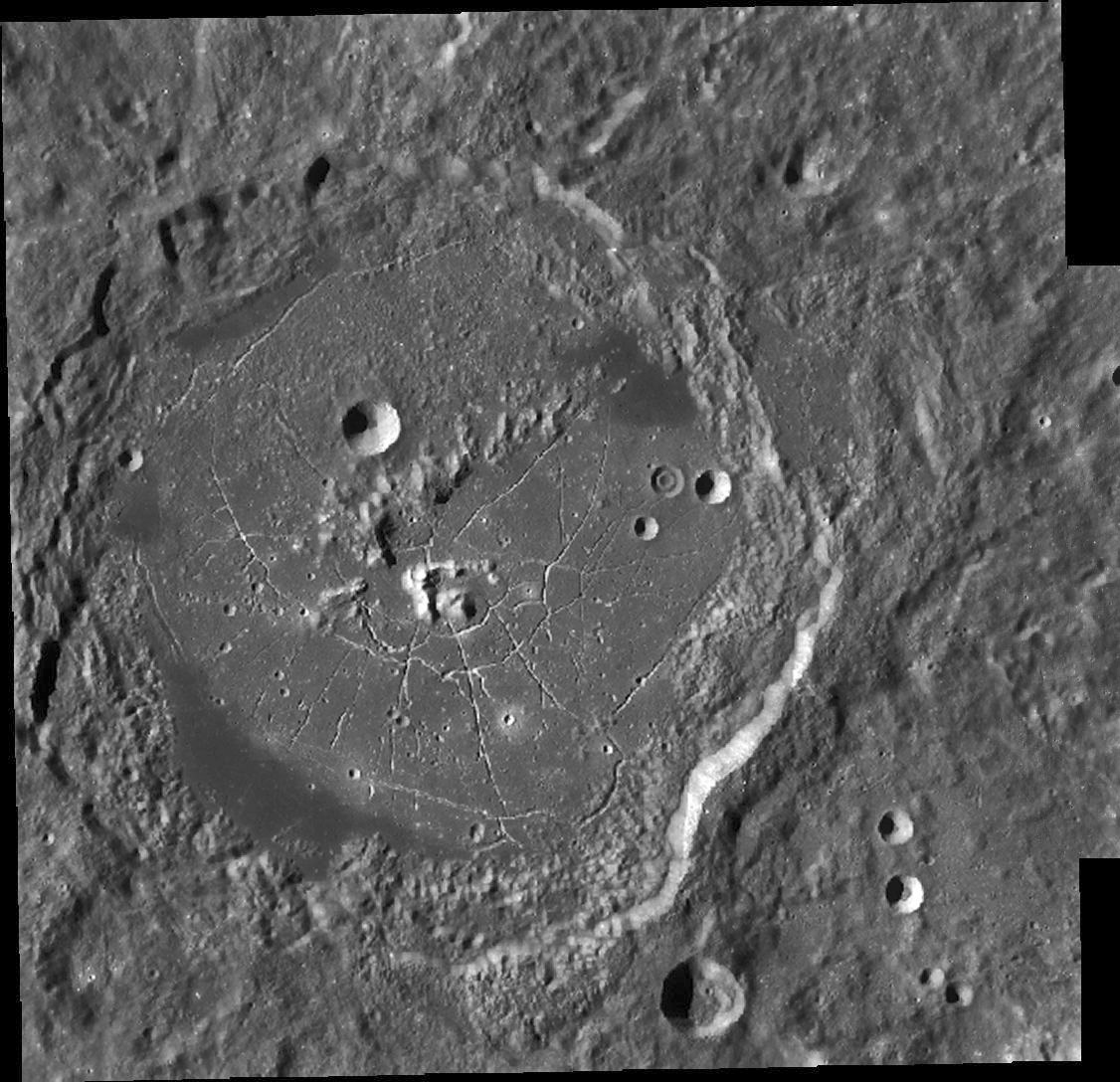February 16, 2011
Floorology
LRO WAC mosaic processed by Maurice Collins
Yesterday Humboldt was seen in an oblique view from Earth and now Maurice has prepared an overhead mosaic
from the Lunar Reconnaissance Orbiter Wide Angle Camera images. In it I see things that I didn't know before. In
yesterday's LPOD I noted that the low spot on the rim (on the right here) was where Humboldt appeared to overlap
a pre-existing crater. I don't think it is a crater but it is strange - there is a somewhat smooth spot and the area is
bounded by nearly straight edges, looking almost like artifacts. Another definite crater that was truncated by the
formation of Humboldt is at bottom left - it is amazing how this crater could have been right at the edge of formation
of a 190 km wide crater and survived. Notice also the dark mare deposits on the floor of Humboldt. Like the slivers
of mare in the Orientale Basin, these are all just inside the major faults at the crater walls. These dark deposits also
bury the rilles, so the lavas erupted after the rilles formed. The rilles themselves are remarkable - they have both a
concentric and radial pattern, but Chuck Wood
Related Links
Rükl plate 60'
COMMENTS?
Click on this icon File:PostIcon.jpg at the upper right to post a comment.




